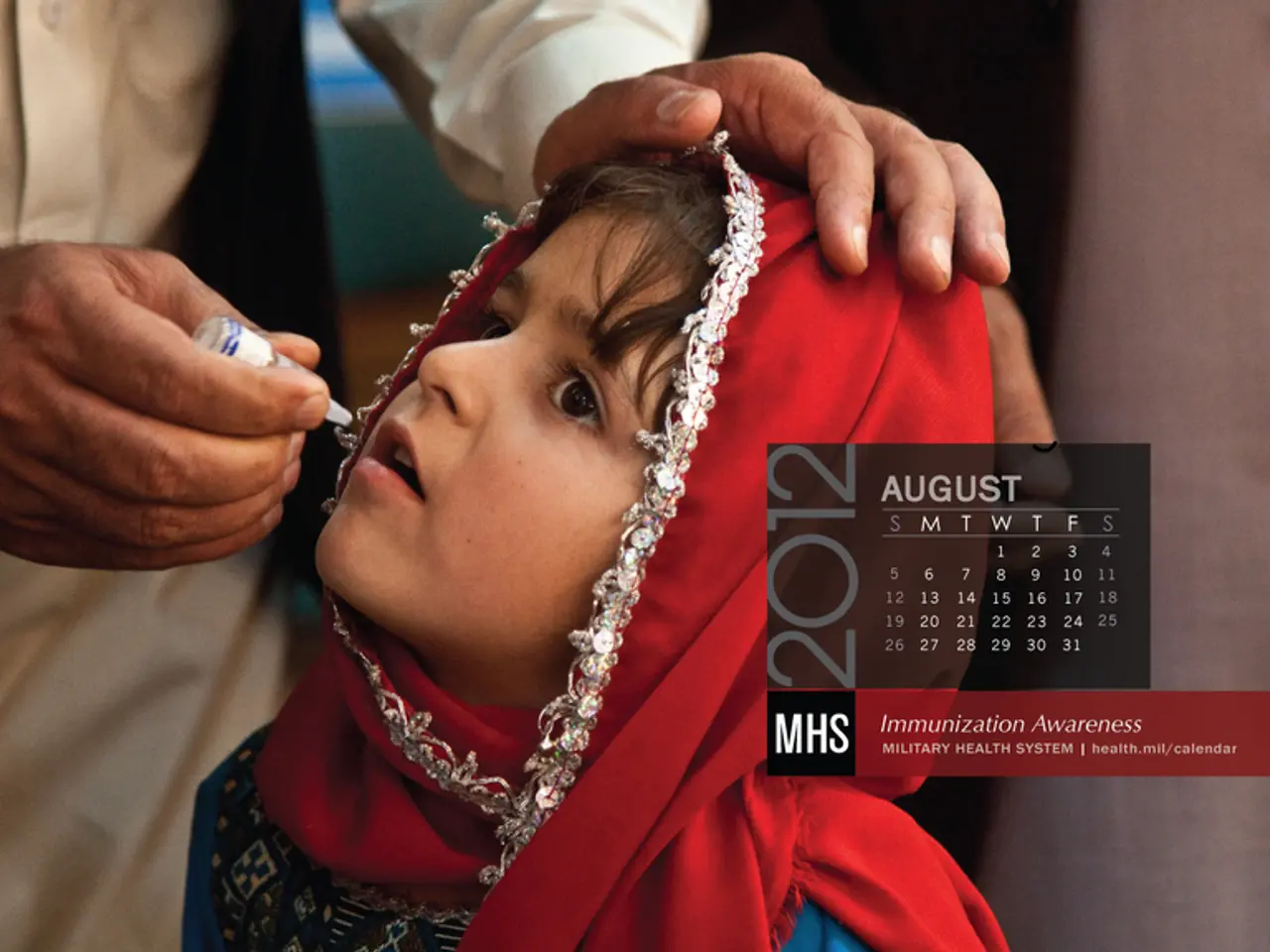Recommendations approved by CDC advisers for alteration in guidelines regarding the administration of MMRV vaccines
The Advisory Committee on Immunization Practices (ACIP) of the US government has voted to change the childhood vaccine schedule, causing a stir in the medical community. The proposed changes, set to be voted on Friday, would mark a significant departure from the current recommendations.
One of the most notable changes concerns the MMRV vaccine, a combination shot for measles, mumps, rubella, and chickenpox. The vote, however, will not affect the Vaccines for Children program. The panel's decision still requires final approval from the acting CDC director Jim O'Neill.
The proposed changes allow children under 4 to receive separate shots for MMR and chickenpox instead of the MMRV vaccine. This shift has faced opposition from representatives of major medical groups, who argue that removing the MMRV shots from the vaccine schedule could lead to fewer kids being vaccinated.
Dr. Jason Goldman, president of the American College of Physicians, expressed his concerns, stating that the change could potentially increase the risk of outbreaks. Dr. Cody Meissner, a pediatrician at Dartmouth College, echoed these sentiments, stating that the MMRV vaccine is extremely safe and changing the recommendations could increase the risk of harm.
Another contentious issue on the table is the hepatitis B vaccine. Dr. Evelyn Griffin, an OB-GYN and ACIP member, questioned the need for a universally given birth dose of the hepatitis B vaccine if mothers could be adequately screened ahead of time. The new recommendation would guide doctors to screen all mothers for hepatitis B and offer the vaccine only to those who do not test negative in an initial screening.
Dr. Meissner noted that efforts to identify high-risk groups for hepatitis B had failed in the past, which is why the recommendations were made in the first place. Dr. Flor Muñoz, a pediatric infectious disease clinician, also questioned the need for the changes to the hepatitis B vaccine recommendation.
The meeting of the ACIP comes on the heels of a contentious Senate hearing, where Susan Monarez, the recently-ousted CDC director, testified that she was fired after clashing with Senator Kennedy over his demands regarding vaccine recommendations from ACIP. Senator Kennedy has barred professional medical groups such as the American Academy of Pediatrics (AAP) from serving in their traditional roles as expert liaisons to workgroups of the advisory committee. The AAP has boycotted the meetings, arguing that federal vaccine policymaking is no longer a credible process.
Several liaisons from major medical groups have criticized the committee's process, adding to the controversy surrounding the proposed changes. The Children's Health Insurance Program and Medicaid may no longer cover the MMRV shots due to the vote, adding another layer of complexity to the already heated debate.
The panel will also vote on recommendations for who should be eligible for the latest COVID-19 vaccines on Friday. The outcome of these votes could have far-reaching implications for public health in the US.
Read also:
- Trump's SNAP reductions and New York City Council's grocery delivery legislation: Problems for city residents highlighted
- Reducing dental expenses for elderlies in Sweden: Over 50% cut in charges for pensioners by the government
- Forty-year-old diet: A list of meal choices to savor
- Exiled Life's Conundrum: A Blend of Liberation, Disillusionment, and Distress





